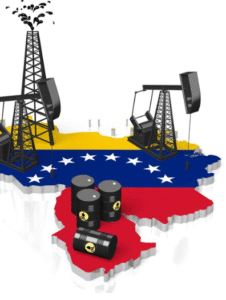$PBR $XOM $OIH
#Petrobras #OilIndustry #GasExploration #BrazilEconomy #EnergyInvestments #CrudeOil #FossilFuels #EmergingMarkets #EnergyTransition #InvestmentPlan #GlobalMarkets #OilProduction
Brazil’s state-owned oil giant, Petrobras, revealed plans to ramp up investments over the next five years, with a significant $111 billion investment framework laid out for the 2025-2029 period. Out of this total, Petrobras has earmarked $77 billion specifically for oil and gas exploration and production, which underscores its continued focus on these traditional energy sources. This marks a strategic move for Brazil’s upstream oil industry, particularly in light of global energy markets driven by fluctuating demand and supply constraints. The Brazilian energy giant’s filing made evident the scale of this commitment, as the newest figure represents a $10 billion increase from an earlier projection of $101 billion. Previously, in its earlier version, the bulk of exploration and production was set at $73 billion, which highlights Petrobras’ ongoing trajectory toward reinforcement in fossil fuel ventures amid an evolving global energy landscape.
The sizable amount allocated to oil and gas exploration is likely an effort by Petrobras to maintain its upstream dominance even as global competitors have increasingly set targets to reduce their reliance on fossil fuels and expand into greener alternatives. By comparison, oil giants like $XOM (ExxonMobil) are also balancing fossil fuel investments with significant pledges toward renewable energy projects. However, for Petrobras, the intensification of its oil and gas spending may be based on Brazil’s rich offshore pre-salt discoveries, which remain lucrative assets capable of contributing substantially to the global crude oil supply. Brazil’s pre-salt assets hold strategic importance not just for Petrobras but also for international stakeholders, as emerging market oil sources provide alternative supply channels in the long-term.
From a financial perspective, Petrobras’ heavier capital allocation towards exploration and production also signals resilience in an environment where larger oil companies are starting to face heightened regulation and scrutiny related to sustainability and climate concerns. While many global players are pressured into incorporating more sustainable energy sources into their portfolios, Petrobras is pushing forward unabated with a stronger focus on traditional inputs. This could potentially see a steady supply of hydrocarbons entering the global market, further influencing oil prices in the mid to long term. For investors, both locally and internationally, the company remains a high-yielding prospect in terms of dividend payouts, benefiting from Brazil’s abundant fossil fuel reserves, though the company’s heavy reliance on a sector facing growing scrutiny also may result in volatility.
In the broader market context, the increase in Petrobras’ investment plan reflects not only its strategic commitment to bolstering Brazil’s position as a major energy producer but also highlights the potential risks. A larger investment in fossil fuels comes against a backdrop of increasing international discourse surrounding renewable energies, ESG (Environmental, Social, and Governance) considerations, and potential carbon regulations. However, for Petrobras, staying tied to resource extraction isn’t surprising considering Brazil’s abundant natural resources and the company’s strategic importance for the country’s economic performance. Investors and market participants will be watching closely as Petrobras seeks to navigate both financial growth from traditional energy assets and the broader climate of global energy transition strategies.











Comments are closed.